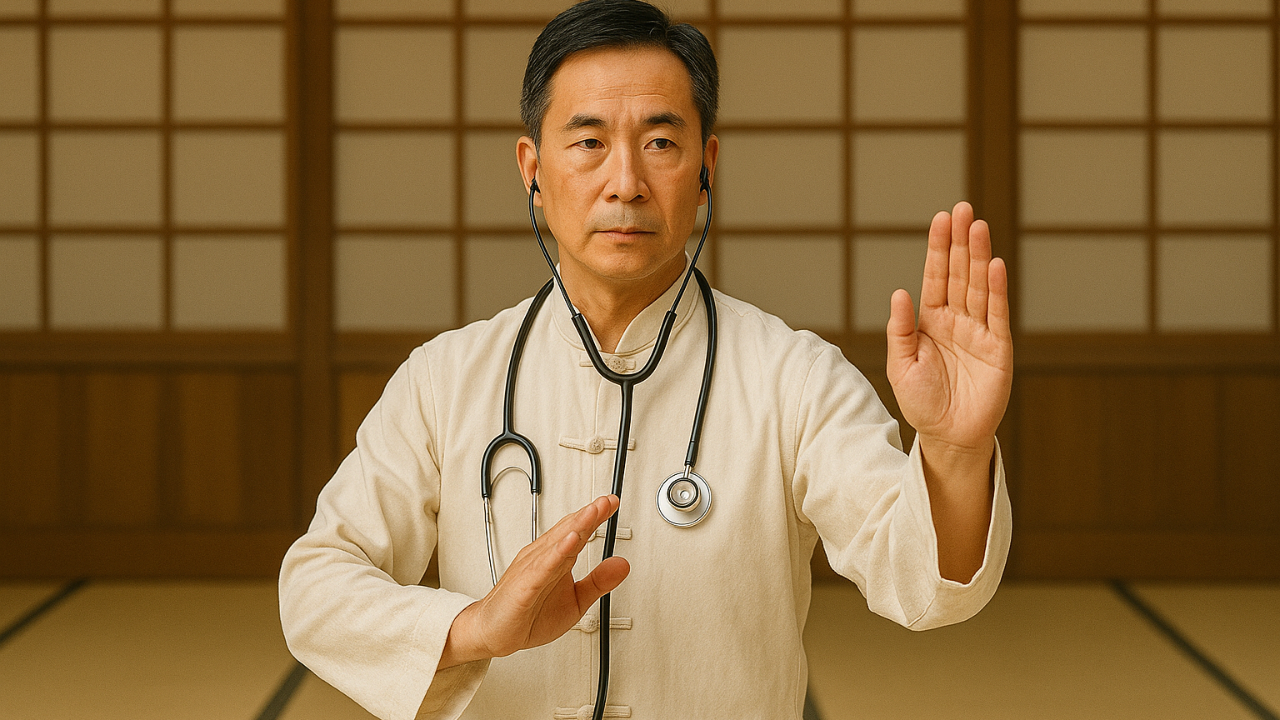There is No Doctor in the Dojo

Don't take medical advice from someone who is not a doctor.
A martial artist in Europe contacted me recently and said that about two and a half years after he began practicing tai chi, hsing-i, bagua and qigong, he began feeling exhausted each time he practiced.
When he does other activities, the student feels good. But when he tries to do the internal arts, he is drained of energy and feels horrible.
His teacher told him that these arts "touch the soul and feelings." In short, the student must be doing something wrong.
There are a lot of quacks in the world of internal arts. "If you do this technique wrong, it will hurt your gall bladder, and if you don't do this movement correctly, it will harm your large intestine."
And people believe it. But, as we can see during this political season, or in churches throughout the world, people will believe just about anything. It doesn't have to make sense.
I advised this student to see a doctor. Have some tests run. Find out what's going on. There have never been documented medical cases -- in a double blind clinical setting -- that indicate exercise such as the internal arts or qigong can make you feel bad unless there is another reason.
Now, if you attend a workshop or take a private lesson from a member of the Chen family, you may be forced to stand in postures for so long that your legs will give out. But that's due to strenuous exercise.
There is NOTHING involved in Tai Chi, Hsing-I, Bagua, or Qigong that can possibly make a healthy person feel bad.
I've heard stories by people who say students have come into class and have started standing stake and suddenly feel panic attacks or stomach pain. They take that as proof that the student had "bad chi" or that the flow of chi triggered something negative in their psyche.
Does the word "poppycock" mean anything to you? It should, and you should blurt it out in full-blown Tai Chi Tourettes if someone tells you these stories.
If you have a panic attack when doing qigong, see a counselor or a psychiatrist. Or start with your doctor.
People have asked me if doing Tai Chi will help them with this condition or that condition. I usually tell them that I'm not a doctor and neither are most instructors, and he should not trust the advice of a martial arts teacher over a physician.
For the instructor, there is a liability issue in play as well. If you give a student the wrong advice and their condition gets worse, you could open yourself up to litigation. Nobody needs that.
It doesn't matter how knowledgeable your teacher wants you to believe he or she is -- and it doesn't matter if they have studied acupuncture, accupressure, or any other of the Traditional Chinese Medicines. It doesn't matter how many of Mantak Chia's books they've read. If you take medical advice from someone without a legitimate "M.D." after their name, you only have your own self to blame.
Feel bad? Go to a doctor, not to a "master."
--by Ken Gullette
Try Two Weeks Free and Get Step-by-Step Training in Taiji, Xingyi and Bagua from Basic to Advanced Skills with No Mystical Mumbo-Jumbo
More than 850 Video Lessons and Downloadable pdf documents -- and You Get It All During Your Free Trial!
Click this Button to Learn More and Watch a Video!
